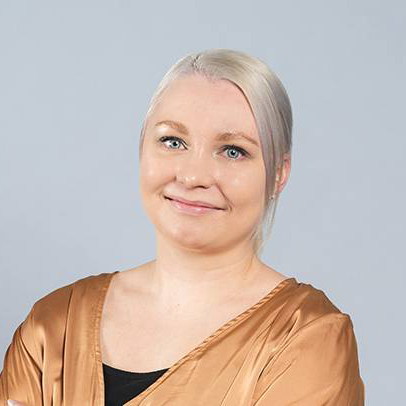Many companies have recruited labor from abroad. One of them is Kespet, whose CEO Pekka Asikainen shares his experience. He explains that in its recruitment efforts, the company has relied on the services of local staffing agencies. Nowadays, Asikainen also utilizes domestic partners for recruitment.
As Finland’s leading expert in technical insulation, Kespet has, over the past fifteen years, hired both foreign workers directly from abroad and foreigners living in Finland for production roles.
”It’s important to find a reliable partner and to be able to describe the job role accurately,” CEO Pekka Asikainen says.
Once recruitment is completed and the employee moves to Finland, Asikainen recommends that the company be ready to help with basic matters.
”It’s important to have housing ready, think about how to communicate if there’s no common language, whether the worker is bringing family members, and if so, considering schools and daycares for children. Pay and tax matters often require careful review. In some cases, we’ve had to familiarize ourselves with and handle work permits and visas,” Asikainen explains.

Kespet Oy is an international leader in the sales of HVAC and industrial insulation products, industrial sheet metal products, and installation accessories and tools in Finland.
Overcoming the language barrier
Kespet has jobs where Finnish language skills are not required. Sometimes there hasn’t been a common language, and in those cases, communication has initially been managed in other ways.
”Training has been done by showing, even drawing on the table, and using a dictionary when there’s no language proficiency. With some, we communicate in English.”
Asikainen notes that attitudes in the workplace have changed positively over the 15 years the company has recruited foreign workers. Today, Kespet employs workers from Poland, Ireland, the Czech Republic, and Bosnia and Herzegovina, in addition to Finland.
”Nowadays, everyone is very well received.”
Some adjustments have been necessary in work practices.
”Particular attention must be paid to safety and training, especially if communication is difficult. Adequate supervision and guidance must also be ensured, especially when work orders are in Finnish.”
Commitment to employee training and support
Despite some challenges, Asikainen is satisfied with the recruitments.
”Once, a tinsmith we hired turned out to be a baker, but more often than not, we’ve been pleased,” Asikainen says.
”Once, a tinsmith we hired turned out to be a baker.”
He encourages others to consider recruiting from abroad if companies are struggling to find workers in Finland and are willing to invest a bit upfront.
”However, I remind everyone that you’re unlikely to find the ’perfect’ person outside the borders either, so the company must be prepared to train and onboard them for the specific tasks they are hired for.”
Muho loves Finnish nature and language
One person who moved to Finland and got a job at Kespet is Muhamed Avdic, known in Finland as Muho. Avdic moved from Bosnia to Finland for work in 2016 with the help of his cousin, who had already worked in Finland for ten years and was employed as a production worker at Kespet.
”My cousin recommended me to the company. Two months later, I received my work permit, and my life changed completely,” Avdic shares.
Before moving to Finland, Avdic knew a lot about Finland, including Finnish bands like HIM, Stratovarius, and The Rasmus.
”The Moomins were also very famous in Bosnia, it was my favorite show as a child.”
”I received my work permit, and my life changed completely.”
Initially, Avdic managed with English, but from the start, his goal was to learn Finnish.
”Every day after work, I attended Finnish language courses, watched Finnish series, and listened to audiobooks. Now I only speak Finnish, but it’s still very difficult and not yet at the level I want. I listen to podcasts and read books in Finnish every day.”
Avdic says that life in Finland has been very positive.
”I worked hard to integrate into Finnish society, and the company I work for has played a big role in that. I’m very grateful to Kespet Oy for giving me the opportunity to work in Finland. Everyone accepted me as if I had lived here my whole life,” Avdic says gratefully.
Finnish (work) culture impresses
In Finnish work culture, Avdic greatly appreciates the fact that salaries are always paid on time, everyone has summer and winter vacations, and all employees have the same rights and are respected.
”I know this might seem ordinary to many Finns, but in many other countries, people don’t have such rights at work,” Avdic points out.
Avdic found friends among other young colleagues and through playing football.
”I realized that Finland is my second home, I feel at home here. I’ve never had any problems in Finland just because I’m a foreigner; on the contrary, everyone has been curious because I’m from Bosnia. I think it’s because I saw everything positive in Finland and respected Finland and its culture.”
Avdic knows many foreigners who have moved to Finland and found work.
”A young immigrant can definitely find work in Finland if they want to. It’s all about personal activity. My best advice to anyone who wants to live and work in Finland is that we, as foreigners, are the ones who came to this beautiful country, and we must adapt and respect Finland,” Avdic concludes.
Palaa etusivulle


